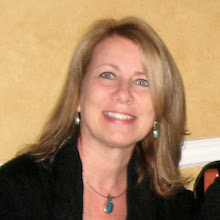 Last fall I discovered Book Barn, a wonderland of used books in Niantic, Connecticut. For those who love to meander through aisles and aisles of books, hoping to serendipitously discover unread treasures-- those entrances to countless secret worlds--this is the place to go. At last count, they had over 350,000 books on display throughout their sprawling complex, which includes a barn, houses, sheds and tents. (You will also find friendly and knowledgeable staff; complimentary coffee, tea, cookies and doughnuts; as well as cats and goats.) 2008 is their twentieth anniversary year.
Last fall I discovered Book Barn, a wonderland of used books in Niantic, Connecticut. For those who love to meander through aisles and aisles of books, hoping to serendipitously discover unread treasures-- those entrances to countless secret worlds--this is the place to go. At last count, they had over 350,000 books on display throughout their sprawling complex, which includes a barn, houses, sheds and tents. (You will also find friendly and knowledgeable staff; complimentary coffee, tea, cookies and doughnuts; as well as cats and goats.) 2008 is their twentieth anniversary year.I came across a copy of (Woman) Writer: Occasions and Opportunities, a 1988 collection of essays by Joyce Carol Oates. Because it contained an intriguing essay about Emily Dickinson that I wanted to finish reading, I bought it. The other day I picked it up to read again, poking about among the offerings, landing on a chapter called "Wonderlands." Here is what she had to say:
How spontaneously our childlike excitement is aroused by the mere notion of a secret world--a secret garden perhaps, or a world of dazzling radiance; a spectral world that is yet authentic, plausible--contiguous with our own (otherwise how should we enter it?) yet altogether separate and unpredictable. A veritable galaxy of fantasy worlds exists for us to explore, in legend, fairy tale, and imaginative literature; and no less fantastic are the hypostatized worlds of singularities (in physics, "non-places" where all known laws of nature seem to be suspended) and counterfactual conditionals ("possible worlds" accessible only by way of logic).... Divine legends, Gothic tales, childhood fantasies, moral parables cloaked in the forms of science fiction, the supernatural, the mock-adventure--each makes claim to having penetrated the most secret region of the soul, addressing the soul in its own special language....
This ties in with her introduction to the book, which begins with a quote from Gide:
"I will maintain that the artist needs only this: a special world of which he alone has the key."
In this opening chapter, Joyce Carol Oates presents two theories about "the genesis of 'art' ":
1. It originates in play: in experiment, improvisation, fantasy; it remains forever, in its deepest impulse, playful and spontaneous, a celebration of the (child's?) imagination.
2. It originates out of the artist's conviction that he or she is born damned; and must struggle through life to achieve redemption. By way of art.
These thoughts appear contradictory. But Joyce Carol Oates says: "Sometimes one is self-evidently true; sometimes, the other."
And later:
The unique power of the unconscious is that it leads us where it will and not where we might will to go. As dreams cannot be controlled, so the flowering of a work of art cannot be controlled except in its most minute aspects.... As in any fairy tale or legend the magic key unlocks a door to a mysterious room--but does one dare enter? Suppose the door swings shut? Suppose one is locked in until the spell has lifted? But if the "spell" is a lifetime? But if the "spell" is the life?
The photograph of poppies (of course) was taken at that secret garden, NY Botanical Garden, on Mother's Day.


No comments:
Post a Comment